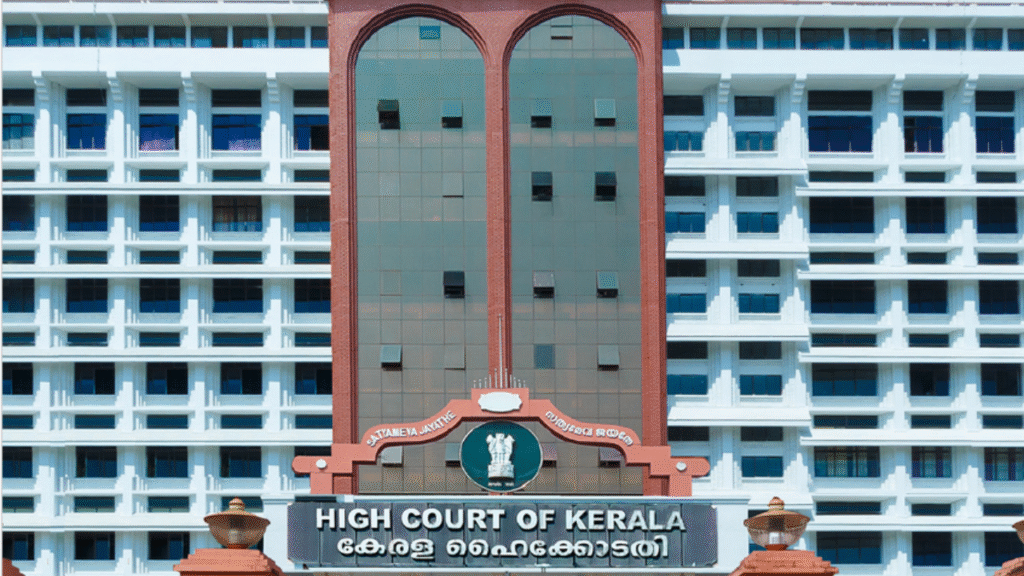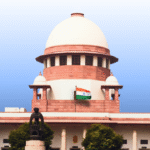NEGOTIABLE INSTRUMENTS ACT, 1881 – SECTION 138, PROVISO (b) – DISHONOUR OF CHEQUE – STATUTORY NOTICE – SERVICE TO THIRD PERSON – NECESSITY OF ACCUSED’S KNOWLEDGE.
(2025) 7 KCD 291 : 2025 KER 55419
IN THE HIGH COURT OF KERALA
P.V.KUNHIKRISHNAN, J.
CRL.REV.PET NO. 865 OF 2023; JULY 29, 2025
NOORUDHEEN v. STATE OF KERALA & ANR.
Issue: Whether the mandatory notice under Section 138(b) of the Negotiable Instruments Act, 1881 (NI Act) is deemed to be served on the drawer of a cheque if it is received by a third person (such as a relative) without any evidence that the drawer was aware of such service.
Facts: The revision petitioner (accused) was convicted under Section 138 of the NI Act by the Judicial First Class Magistrate Court -II, Alathur, which was confirmed by the Sessions Court, Palakkad. The complainant alleged that the accused borrowed Rs. 3,00,000/- and issued a cheque which was dishonoured for insufficient funds, and despite a lawyer’s notice, the amount was not paid. The accused contended that the statutory notice under Section 138(b) of the NI Act was not served on him but on another person. Evidence showed that the notice was received by ‘Amina,’ the mother of the accused, but the complainant provided no evidence that the accused was aware of this receipt.
Held: The High Court allowed the Criminal Revision Petition, setting aside the conviction and sentence, and acquitted the revision petitioner.
Reasoning:
The Court reaffirmed the dictum laid down in Saju v. Shalimar Hardwares [2025 KHC OnLine 719], holding that service of notice to a relative of the accused is not sufficient, especially when there is no evidence from the complainant’s side that the accused was aware of such service on his relative. In such circumstances, it is to be presumed that the statutory notice under Section 138(b) of the NI Act was not served on the accused.
The Court relied on the Apex Court’s decision in Thomas M.D. v P.S.Jaleel and Another [2009 KHC 4398], which held that service of demand notice on the appellant’s wife was not compliance with Section 138(b), thereby not sustaining the conviction. This decision was noted as not overruled or considered by Vinod Shivappa’s case and was delivered subsequent to C.C. Alavi Haji’s case.
The Court distinguished the Apex Court’s rulings in Vinod Shivappa v. Nanda Belliappa [2006 KHC 840] and M/s Indo Automobiles v. M/s. Jai Durga Enterprises and Others [2008 (3) KHC 815]. These cases primarily addressed situations where notice was refused or returned due to non-availability or locked premises, and the presumption of service, or concerned the High Court’s jurisdiction under Section 482 Cr.P.C. to quash proceedings at a premature stage. They did not directly deal with a scenario where notice was served to a third person without the accused’s knowledge.
Regarding C C Alavi Haji v. Palapetty Muhammed and Another [2007 (2) KHC 932], the Court acknowledged that giving notice to the drawer is a mandatory requirement. While a preliminary presumption of service arises if notice is sent to the correct address (under Section 27 of the General Clauses Act, 1897), the drawer has the right to show that he had no knowledge that the notice was brought to his address. If the complainant’s own evidence shows notice was served to a third person, and there’s no explanation that the accused was aware of it, there is no “accomplishment” of notice. The Court also noted that paragraph 17 of C.C. Alavi Haji’s case, which allows payment within 15 days of receiving summons, applies to cases where the debt is admitted, not disputed. Therefore, the dictum in Saju’s case was found not to be against the principles laid down in C.C. Alavi Haji’s case.
The Court did not agree with the observation in Komala Unnikrishnan v. Manoj Kumar K. [2023 KHC 783] that notice received by someone attached to the office is sufficient unless the accused proves the address was incorrect or the person unauthorized. This observation was deemed per incuriam because it did not consider Thomas M.D.’s case.
In the present case, since the complainant admitted the notice was received by ‘Amina’ (accused’s mother) and had no case or evidence that the accused was aware of this receipt, the Court concluded that notice was not served to the accused.
Any amount deposited by the revision petitioner as per interim orders should be returned.


